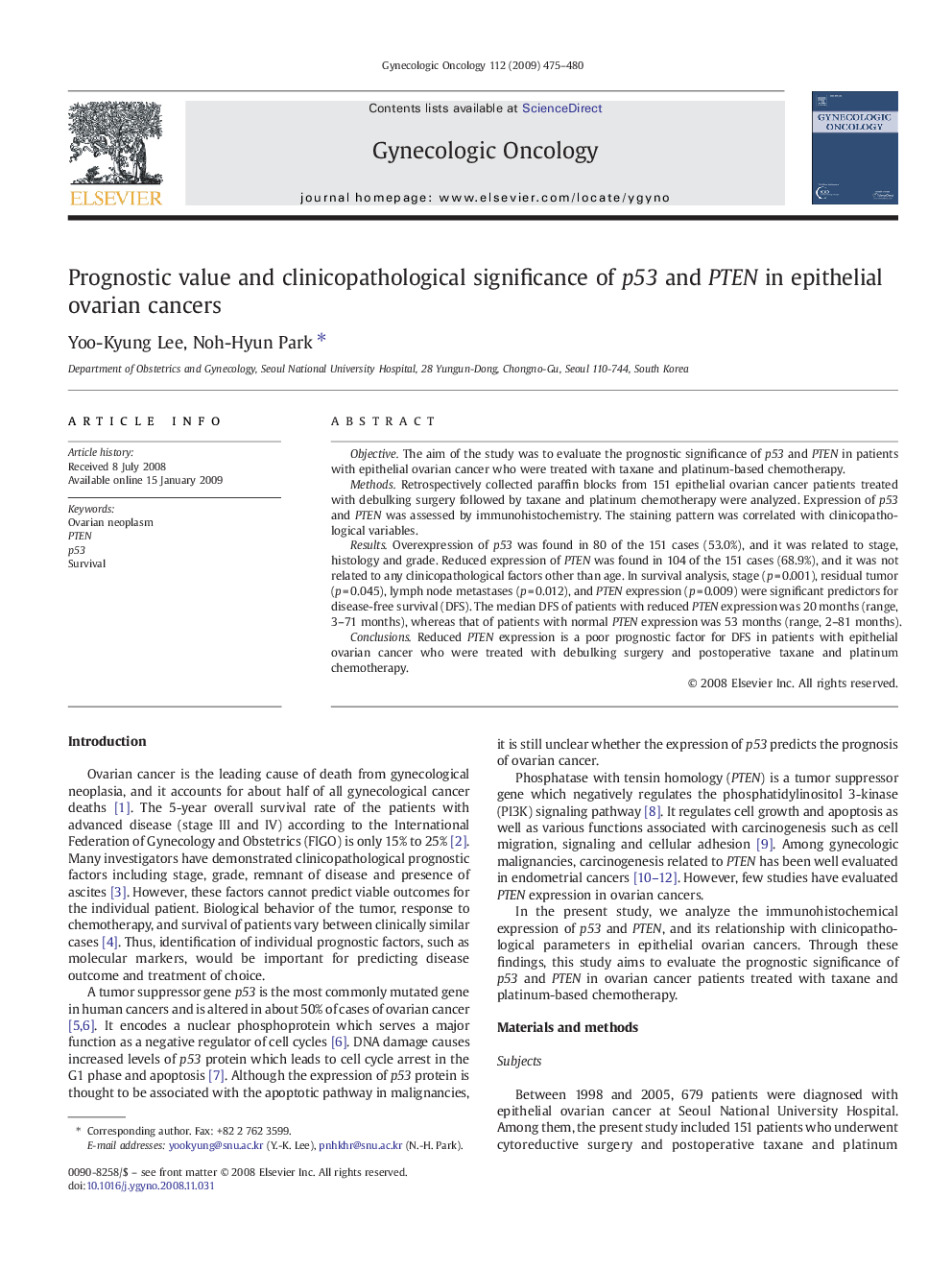| Article ID | Journal | Published Year | Pages | File Type |
|---|---|---|---|---|
| 3945950 | Gynecologic Oncology | 2009 | 6 Pages |
ObjectiveThe aim of the study was to evaluate the prognostic significance of p53 and PTEN in patients with epithelial ovarian cancer who were treated with taxane and platinum-based chemotherapy.MethodsRetrospectively collected paraffin blocks from 151 epithelial ovarian cancer patients treated with debulking surgery followed by taxane and platinum chemotherapy were analyzed. Expression of p53 and PTEN was assessed by immunohistochemistry. The staining pattern was correlated with clinicopathological variables.ResultsOverexpression of p53 was found in 80 of the 151 cases (53.0%), and it was related to stage, histology and grade. Reduced expression of PTEN was found in 104 of the 151 cases (68.9%), and it was not related to any clinicopathological factors other than age. In survival analysis, stage (p = 0.001), residual tumor (p = 0.045), lymph node metastases (p = 0.012), and PTEN expression (p = 0.009) were significant predictors for disease-free survival (DFS). The median DFS of patients with reduced PTEN expression was 20 months (range, 3–71 months), whereas that of patients with normal PTEN expression was 53 months (range, 2–81 months).ConclusionsReduced PTEN expression is a poor prognostic factor for DFS in patients with epithelial ovarian cancer who were treated with debulking surgery and postoperative taxane and platinum chemotherapy.
